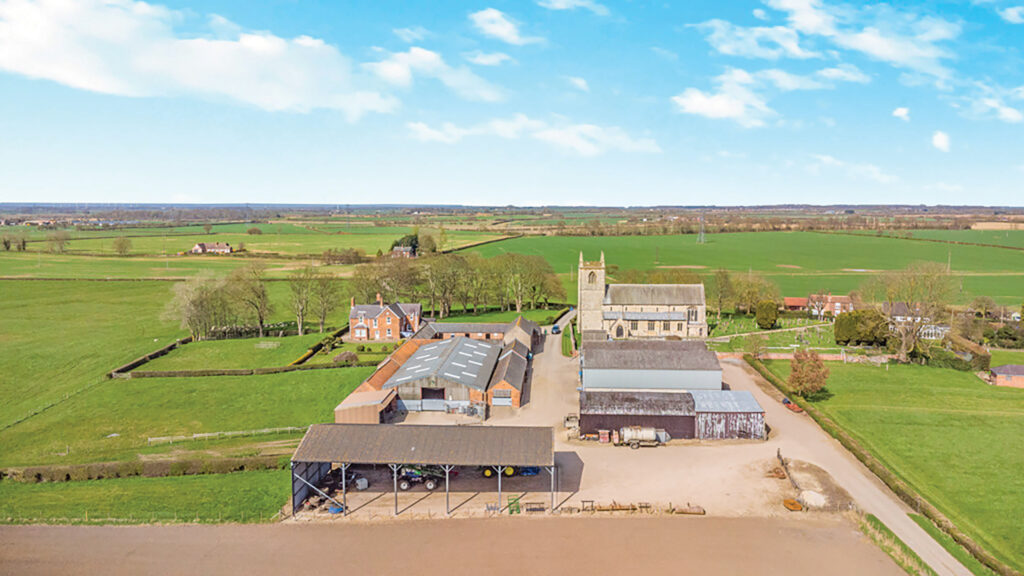Crown Estate launches new environmental FBT
 © Carter Jonas
© Carter Jonas Fifteen-year farm business tenancies are being offered by the Crown Estate, on agreements which also allow tenants to earn from environmental measures and diversification.
This has been welcomed by tenants’ representatives as a breakthrough.
This is a departure from typical terms of just three to four years for farm business tenancies (FBTs) which generally exclude tenants from accessing environmental and diversification opportunities.
See also: New landlord-tenant code of practice – what’s changed?
The environmental farm business tenancy (eFBT), as the new agreement is known, incorporates the principles of the Agricultural Landlord and Tenant Code of Practice for England.
It will be used by the Crown Estate for all new lettings as existing FBT agreements expire.
The estate also hopes it will be used as a model for other landlords.
Two of its farms are already let on eFBTs.
Tenders opened recently for a further farm and two large blocks of land on the new model, which gives the landlord only very limited and specific opportunities to break the 15-year term.
The agreements encourage and expect tenants to come forward with ideas for environmental enhancements on 15% of the land, with carbon and biodiversity baselines being set and monitored.
Diversification proposals are also encouraged, with the Crown Estate likely to share the cost and income with the tenant in many cases.
Launching the concept, Paul Sedgwick, deputy ranger and managing director of Windsor and rural for The Crown Estate, said:
“We are all seeking to address a central question around the future of land use and how we achieve the right balance between many competing demands – there is no set answer.”
Food production remained absolutely core to the estate, but nature and biodiversity loss must be tackled, he said.
Rents impact
“We accept that rents may reduce, indeed we are actively reducing them on land transitioning to nature recovery in order to drive better outcomes.”
With almost 83,000ha of rural land, the Crown Estate is the UK’s seventh-largest landowner.
The Tenant Farmers Association (TFA) has been involved in the development of the eFBT and has endorsed the model, with chief executive George Dunn describing it as a huge breakthrough.
“It’s very much a partnership approach,” he said.
“It’s an open book approach with each agreement giving opportunities for tenants to come forward with ideas for environmental improvements and diversification, with the benefits of both shared between landlord and tenants according to input and risk.
“It’s an excellent way forward and gives tenants real choice.”
Wider potential
Lawyers at the launch were positive about the concept, but said careful drafting would be needed.
“All credit to the Crown Estate for leading on this,” said Vivienne Williams, a partner in law firm Michelmores and head of its agriculture team.
“Some of our estate clients want to do similar things. This will set the tone and the agenda and change the conversation, but there will need to be a bit of give and take on both sides.”
At law firm Forsters consultant Christopher Findley said that the eFBT offered the prospect of a genuine rebalancing of the landlord/tenant relationship with tenants of the Crown Estate, with wider potential.
“I can see it being an opportunity for landowners whose landholding includes letting a number of farms and who wish to enable themselves and their tenants to exploit the available avenues of income additional to farming, from their land.
“For landowners, the additional freedom to carry on diverse activities on the tenant’s part is risk-free, because the traditional inheritance tax (IHT) disadvantage of their let farms’ land being ineligible to business property relief on the non-agricultural value of the tenanted land has been removed by the changes to IHT rates of relief announced in the Budget on 30 October 2024.
“It is a move which reflects the original wish of the TFA prior to negotiation of freedom of contract in the 1995 Act, to have some longer term tenancy with greater flexibility than the tenancies which have become the norm since 1995.”
Minister of state Daniel Zeichner said at the launch of the e-FBT that restoring nature was not in competition with sustainable food production but was essential to it.
“These innovative agreements are a fantastic example of landlords and tenants working in partnership to find solutions that will support farm businesses to be profitable, produce food sustainably, and enhance nature’s recovery,” he said.
Mr Zeichner added that he hoped they could be used as a model across the wider sector in the future.
